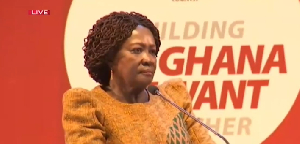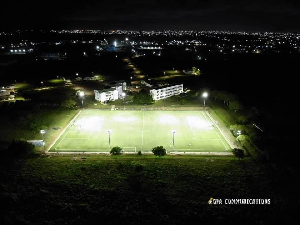Business News of Sunday, 5 May 2019
Source: thefinderonline.com
25% of SSNIT contributors earn less than GH¢400 a month
About 25 per cent of active contributors of the Social Security and National Insurance Trust (SSNIT) earn salaries less than GH¢400 a month.
As at the end of February 2019, data collated by SSNIT put total active contributors at 1.5 million.
This means that about 375,000 contributors to SSNIT earn less than GH¢400 a month.
In addition, half of all active contributors totalling 750,000 earn less than GH¢1,000 a month.
Director-General of SSNIT, Dr John Ofori-Tenkorang, revealed this in a presentation he made in Accra Wednesday, 24th April 2019, at a Pre-May Day Forum by Organised Labour and Friedrich-Ebert Stiftung (FES) Foundation on the theme ‘Sustainable Pensions for All: The Role of Social Partners.’
The data further indicated that 25 per cent of pensioners who are at the bottom end of the scheme were receiving monthly pensions of GH¢300 which is the minimum pension and GH¢400.
“If nothing changes and people who are in active service today and contributing to the scheme on less than GH¢400 a month go on retirement, they will clearly not earn more than GH¢400 a month on pension,” Dr Ofori-Tenkorang said.
He noted the concept of low pension was a reflection of what members contributed to the scheme.
With regard to the current pensions SSNIT is paying to pensioners, he said about 50 per cent of the pensioners were earning about GH¢600 or less a month.
“What is happening today in terms of contribution is later going to reflect in the pensions,” he lamented.
He said it was also worrying to note that about 78 per cent of SSNIT pensioners get less than GH¢1,000 a month from the scheme, while 71 per cent of people in active service were contributing on salaries less than GH¢1,800 a month.
The data also indicated that only four per cent of active workers are contributing on salaries GH¢5,000 and above, whereas only 1 per cent in the pension bracket are earning pensions of more than GH¢5,000.
Subsidies pension
Dr Ofori-Tenkorang explained that the minimum amount a pensioner should receive a month was GH¢300 irrespective of what one contributed.
“If you are contributing on minimum wage and your pension is below the minimum amount you are automatically bumped up to receive the minimum pension.”
He said they noticed that the minimum pension they paid over the years towards 2015 became higher than the earnings of people who were in active service, therefore “SSNIT has to subsidise the pension of low contributors.”
“In view of the low salaries on which members contribute, the management and board of the Trust had to put that measure in place to cushion people who were at the bottom end of the scheme.”
SSNIT does not cheat pensioners
Mr debunked the notion that SSNIT cheats pensioners, adding that it was not in the interest of any SSNIT employee or management to cheat or not to pay the right amount as legislated by law to pensioners.
He said when mistakes occur and it was brought to their attention, they engage and correct it.
“I realise that there may be issues relating to service delivery and the difficulty some persons have to go through to get their pensions paid. I want to assure you that the Trust was working assiduously to make sure that all the troubles are taken off when one qualifies and applies for their pension.”
SSNIT Investments
SSNIT invests in various sectors of the economy to supplement the contributions collected to pay for pensions; Dr Ofori-Tenkorang added that SSNIT’S investment portfolio consists of equities, fix income, real estate, hospitality, energy and some in alternative investments and about five per cent abroad.
“We have a large exposure to the financial sector, we have investment in almost every bank that you can think of, Société Générale, Ecobank, Fidelity Bank, Ghana Commercial Bank, Republic Bank, among others.”
He said it was no secret that in the past they have made some investment decisions that did not yield the best returns, he indicated that they have and were still putting in measures to ensure that their existing investment were better managed and new investments subjected to the highest degree of due diligence before investments would be made.











